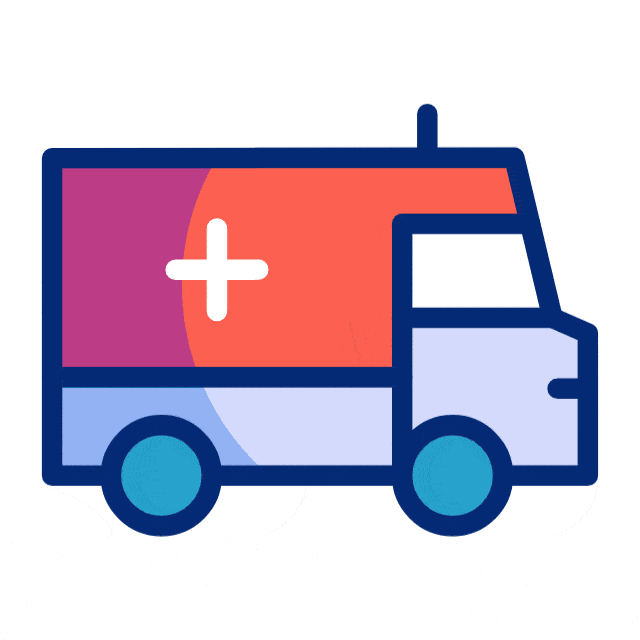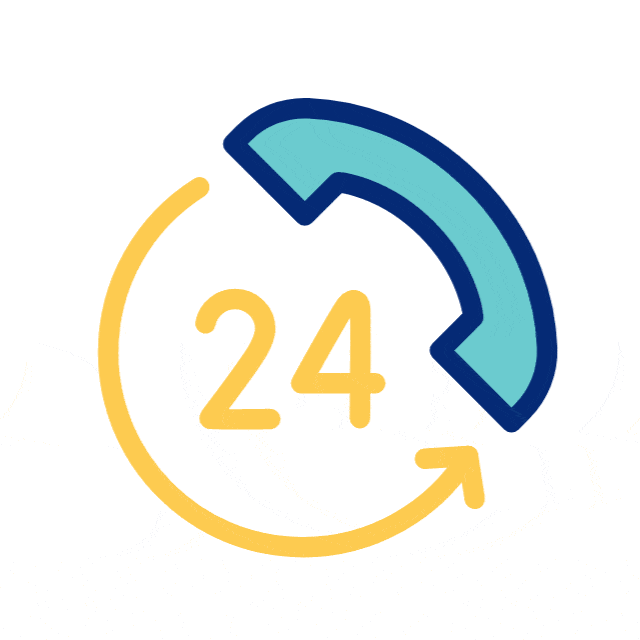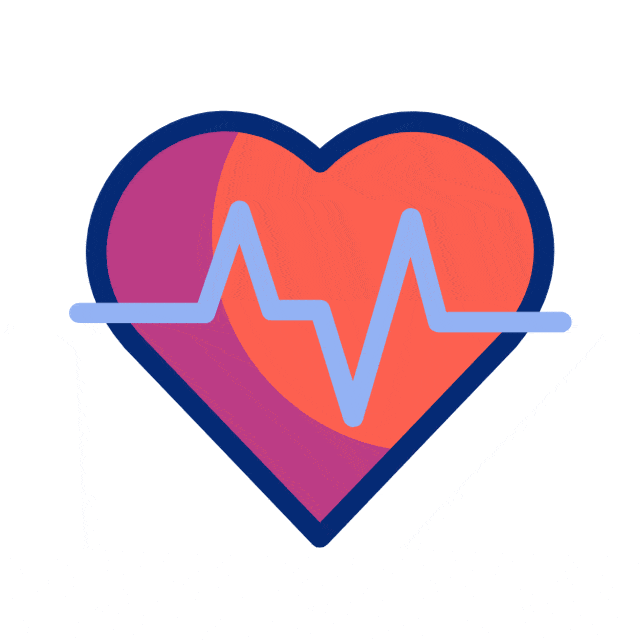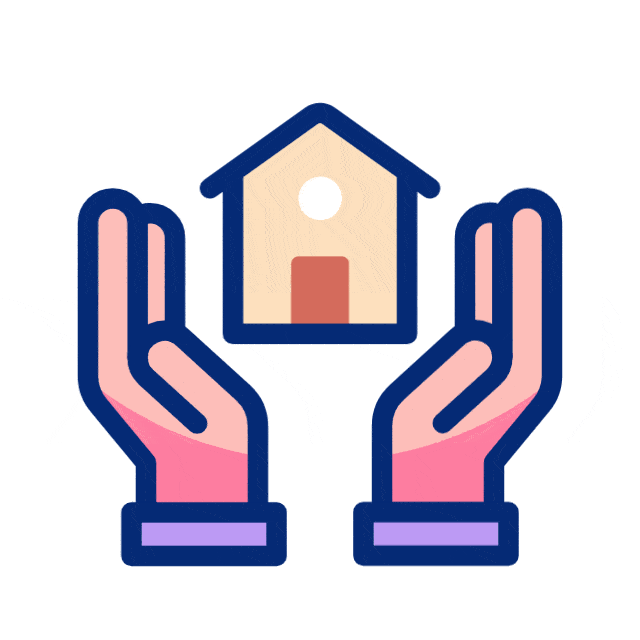Category : Gynecology
High blood pressure (also called hypertension) can lead to health problems at any time in life. High blood pressure usually does not cause symptoms. During pregnancy, severe or uncontrolled high blood pressure can cause problems for you and your fetus.
Some women have high blood pressure before they get pregnant. Others develop it for the first time during pregnancy. A serious high blood pressure disorder called preeclampsia also can happen during pregnancy or soon after childbirth.

What is blood pressure?
Blood pressure is the force of blood pushing against the walls of blood vessels called arteries . The arteries bring blood from the heart to your lungs, where it picks up oxygen and then moves to your
organs and tissues. The organs and tissues use the oxygen to power their activities. Blood vessels called veins return the blood to the heart.
What do the blood pressure numbers mean?
A blood pressure reading has two numbers separated by a slash. A blood pressure reading of 110/80 mm Hg, for instance, is referred to as “110 over 80.” The first number is the pressure against the artery walls when the heart contracts. This is called the systolic blood pressure . The second number is the pressure against the artery walls when the heart relaxes between contractions. This is called the diastolic blood pressure.
What are the guidelines for blood pressure?
- Normal: Less than 120/80 mm Hg
- Elevated: Systolic between 120 and 129 mm Hg and diastolic less than 80 mm Hg
- Stage 1 hypertension: Systolic between 130 and 139 mm Hg or diastolic between 80 and 89 mm Hg
- Stage 2 hypertension: Systolic at least 140 mm Hg or diastolic at least 90 mm Hg
How often should blood pressure be checked during pregnancy?
Your obstetrician–gynecologist (ob-gyn) should check your blood pressure at each prenatal care visit. Blood pressure changes often during the day. If you have one high reading, another reading may be taken later during your office visit.
What is chronic hypertension?
Chronic hypertension is high blood pressure that a woman has before getting pregnant or that develops in the first half of pregnancy (before 20 weeks of pregnancy). If you were taking blood pressure medication before you got pregnant—even if your blood pressure is currently normal—you have been
diagnosed with chronic hypertension.
How does chronic hypertension affect a pregnant woman?
When a woman is pregnant, her body makes more blood to support the fetus’s growth. If blood pressure goes up during pregnancy, it can place extra stress on her heart and kidneys . This can lead to heart
disease, kidney disease, and stroke . High blood pressure during pregnancy also increases the risk of preeclampsia, preterm birth, placental abruption , and cesarean birth .
How does chronic hypertension affect a fetus?
High blood pressure may reduce blood flow to the placenta . As a result, the fetus may not get enough of the nutrients and oxygen needed to grow.
What is the treatment for chronic hypertension during pregnancy?
Treatment depends on whether your high blood pressure is mild or severe. In the first half of pregnancy, blood pressure normally goes down. If your hypertension is mild, your blood pressure may stay that way
or even return to normal during pregnancy. If this happens, your ob-gyn may reduce your medication or recommend you stop taking your medication during pregnancy. If you have more severe hypertension or
have health problems related to it, you may need to start or continue blood pressure medication during pregnancy.
How will my health be monitored during pregnancy?
Your blood pressure will be checked at every prenatal care visit. You also may need to monitor your
blood pressure at home. Ultrasound exams may be done throughout pregnancy to track the growth of the fetus. If growth problems are suspected, you may have other tests that monitor the health of the
fetus. This testing usually begins in the third trimester of pregnancy.
Will I need to deliver early if I have chronic hypertension?
If your condition remains stable, delivery 1 to 3 weeks before your due date (about 37 weeks to 39 weeks of pregnancy) generally is recommended. If you or the fetus develop complications , delivery may be needed even earlier.
What will happen after delivery if I have chronic hypertension?
After delivery, you will need to keep monitoring your blood pressure at home for 1 to 2 weeks. Blood
pressure often goes up in the weeks after childbirth. You may need to resume taking medication, or your medication dosage may need to be adjusted. Talk with your ob-gyn about blood pressure medications that are safe to take if you plan to breastfeed. Do not stop any medications without talking with your ob- gyn.
What is gestational hypertension?
A woman has gestational hypertension when:
- She has a systolic blood pressure of 140 mm Hg or higher and/or a diastolic blood pressure of 90 mm Hg or higher.
- The high blood pressure first happens after 20 weeks.
- She had normal blood pressure before pregnancy.
Most women with gestational hypertension have only a small increase in blood pressure. But some
women develop severe hypertension (defined as systolic blood pressure of 160 mm Hg or higher and/or diastolic blood pressure of 110 mm Hg or higher) These women are at risk of very serious
complications.
How will my health be monitored if I have gestational hypertension?
All women with gestational hypertension are monitored often (usually weekly) for signs of preeclampsia and to make sure that their blood pressure does not go too high.
How does gestational hypertension affect future health?
Although gestational hypertension usually goes away after childbirth, it may increase the risk of
developing high blood pressure in the future. If you had gestational hypertension, keep this risk in mind as you take care of your health. Healthy eating, weight loss, and regular exercise may help prevent high blood pressure in the future.
What is preeclampsia?
Preeclampsia is a serious disorder that can affect all organs in a woman’s body. It usually develops after 20 weeks of pregnancy, often in the third trimester. When it develops before 34 weeks of pregnancy, it is called early-onset preeclampsia. It also can develop in the weeks after childbirth.
What are the risk factors for preeclampsia?
It is not clear why some women develop preeclampsia. Doctors refer to “high risk” and “moderate risk” of preeclampsia.
Risk factors for women at high risk include
- preeclampsia in a past pregnancy
- carrying more than one fetus
- chronic hypertension
- kidney disease
- diabetes mellitus
- autoimmune conditions, such as lupus (systemic lupus erythematosus or SLE)
Risk factors for women at moderate risk include
- being pregnant for the first time
- body mass index (BMI) over 30
- family history of preeclampsia (mother or sister)
- being older than 35
How does preeclampsia affect the body?
- Preeclampsia can lead to a condition that causes seizures and stroke.
- Preeclampsia can cause HELLP syndrome . HELLP stands for hemolysis, elevated liver enzymes, and
low platelet count. HELLP syndrome damages or destroys red blood cells and interferes with blood clotting. It also can cause chest pain, abdominal pain, and bleeding in the liver. HELLP syndrome is a medical emergency. Women can die from HELLP syndrome. They also can have lifelong health
problems from the condition.
Will I need to deliver early if I have preeclampsia?
For women with preeclampsia, early delivery may be needed in some cases. Preterm babies have an increased risk of problems with breathing, eating, staying warm, hearing, and vision. Some preterm complications last a lifetime and require ongoing medical care.
How does preeclampsia affect future health?
Women who have had preeclampsia—especially those whose babies were born preterm—have an increased risk later in life of kidney disease, heart attack, stroke, and high blood pressure. Also, having preeclampsia once increases the risk of having it again in a future pregnancy.
What are the signs and symptoms of preeclampsia?
Preeclampsia can develop quietly without you being aware of it. Symptoms can include
- swelling of face or hands
- headache that will not go away
- seeing spots or changes in eyesight
- pain in the upper abdomen or shoulder
- nausea and vomiting (in the second half of pregnancy)
- sudden weight gain
- difficulty breathing
If you have any of these symptoms, especially if they develop in the second half of pregnancy, call your ob-gyn right away.
A woman with preeclampsia whose condition is worsening will develop “severe features.” Severe features include
- low number of platelets in the blood
- abnormal kidney or liver function
- pain in the upper abdomen
- changes in vision
- fluid in the lungs
- severe headache
- systolic pressure of 160 mm Hg or higher or diastolic pressure of 110 mm Hg or higher
How is preeclampsia diagnosed?
A high blood pressure reading may be the first sign of preeclampsia. If your blood pressure reading is high, it may be checked again to confirm the results. You may have a urine test to check for protein. You also may have tests to check how your liver and kidneys are working and to measure the number of
platelets in your blood.
How is preeclampsia managed?
You and your ob-gyn should talk about how your condition will be managed. The goal is to limit complications for you and to deliver the healthiest baby possible.
How is preeclampsia managed when there are no severe features?
Women who have gestational hypertension or preeclampsia without severe features may be treated in a hospital or as an outpatient. Being an outpatient means you can stay at home with close monitoring by your ob-gyn. You may need to keep track of your fetus’s movement by doing a daily kick count . You also may need to measure your blood pressure at home. Visits to your ob-gyn may be once or twice a week.
At 37 weeks of pregnancy you and your ob-gyn may talk about delivery Labor may be induced (started
with medications). If test results show that the fetus is not doing well, you may need to have the baby
earlier. Women with preeclampsia can have vaginal deliveries, but if there are problems during labor, cesarean birth may be needed.
How is preeclampsia managed when there are severe features?
If you have preeclampsia with severe features, you may be treated in the hospital. If you are at least 34 weeks pregnant, you and your ob-gyn may talk about having your baby as soon as your condition is stable.
If you are less than 34 weeks pregnant and your condition is stable, it may be possible to wait to deliver your baby. Delaying delivery for just a few days may be helpful in some cases. It allows time to give
corticosteroids , which can help the fetus’s lungs mature. Delaying also can give you time to take medications to reduce your blood pressure and help prevent seizures. If your health or the fetus’s health worsens, you and your ob-gyn should discuss immediate delivery.
Can preeclampsia be prevented?
There is no screening test that can predict whether a woman will develop preeclampsia during
pregnancy. For now, prevention involves identifying whether you have risk factors for preeclampsia and taking steps to address them.
What should I do if I have high blood pressure and want to get pregnant?
If you have high blood pressure and want to get pregnant, see your ob-gyn for a check-up. Your ob-gyn will want to know if your high blood pressure is under control and if it has affected your health. You may have tests to check how your heart and kidneys are working. Your medications should be reviewed to see if you need to switch to others that are safer during pregnancy. You also should talk about the signs and symptoms of preeclampsia.
Does low-dose aspirin prevent preeclampsia?
Low-dose aspirin may reduce the risk of preeclampsia in some women. Your ob-gyn may recommend that you take low-dose aspirin if
- you are at high risk of developing preeclampsia
- you have two or more risk factors for preeclampsia
Do not start taking aspirin on your own without talking with your ob-gyn.
Learn more about the facilities provided by JSS Hospital, Click the below link
https://jsshospital.in/obstetrics-gynecology/facilities





